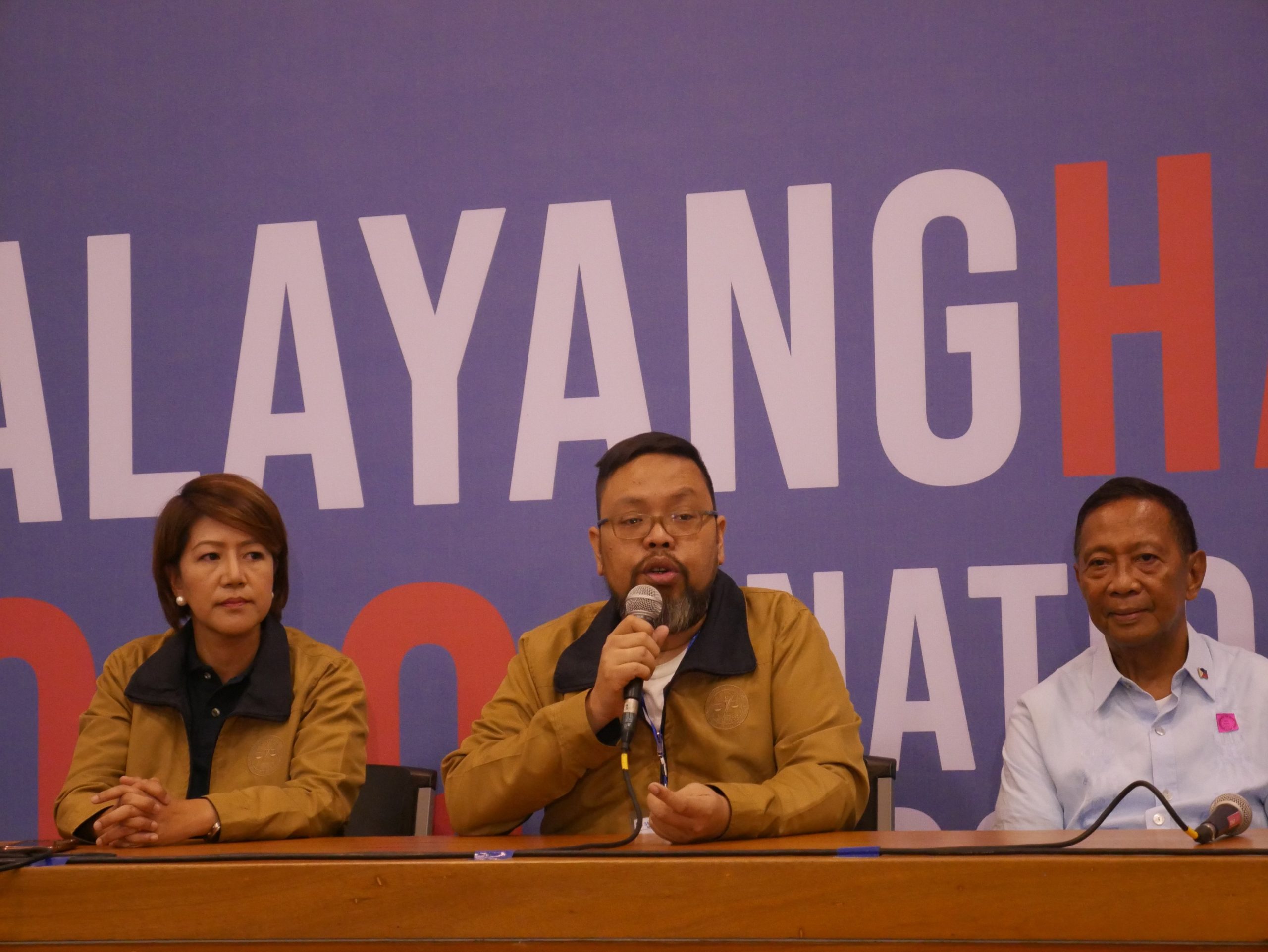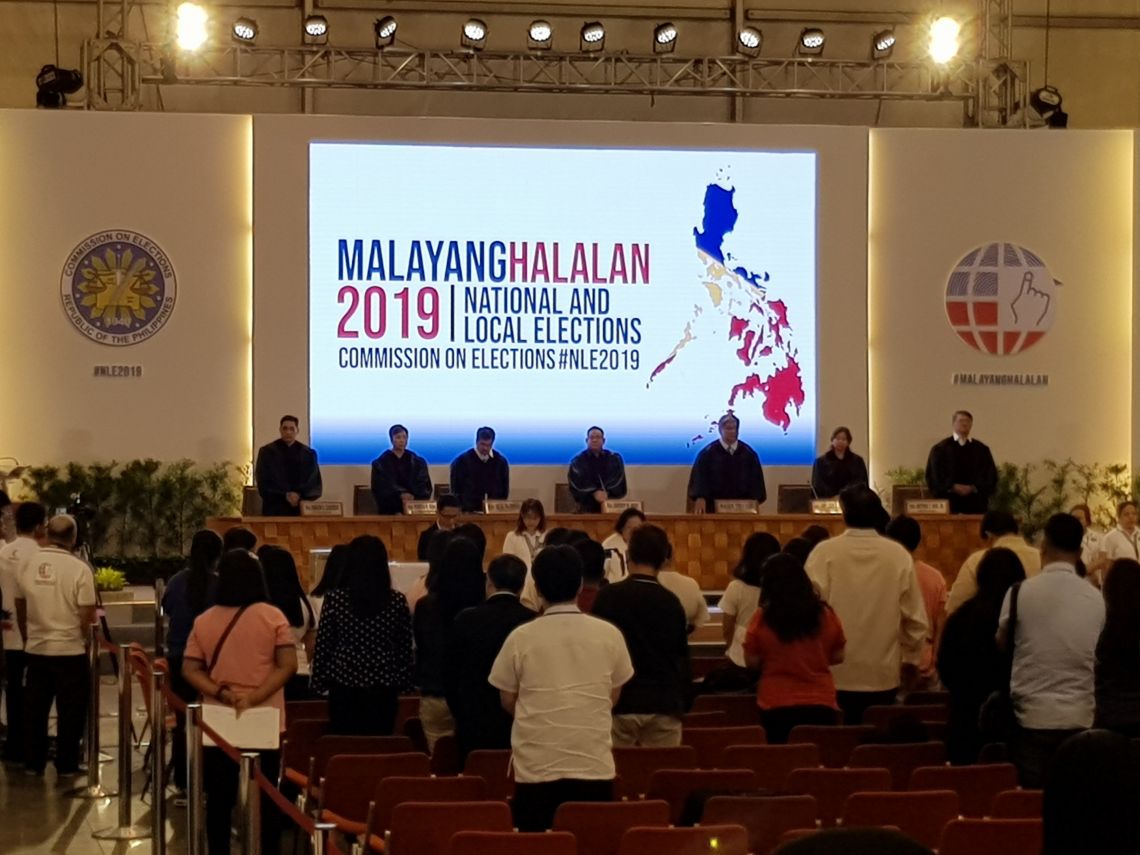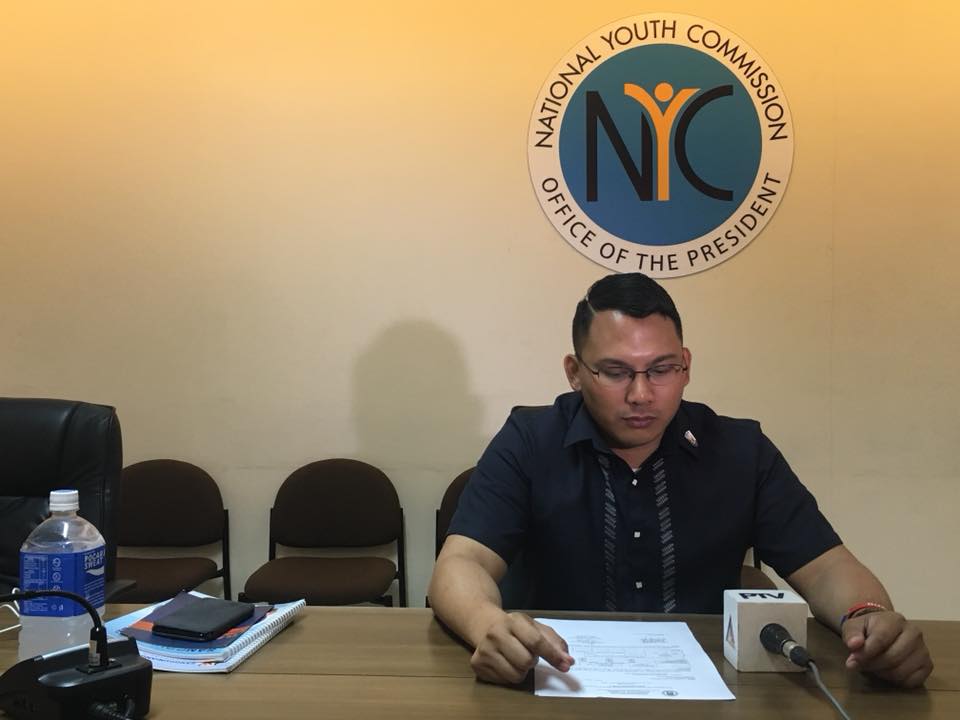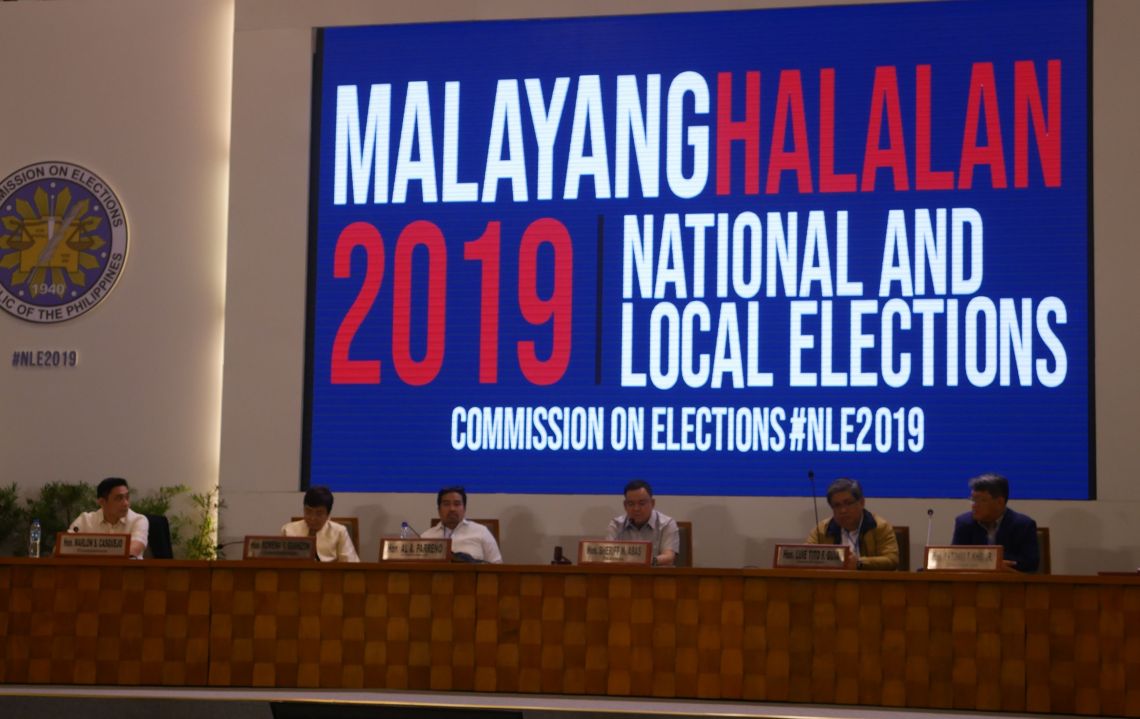
Comelec commissioners explain in a press briefing some of the lapses that affected the 2019 Philippine midterm elections. Poll chief Sheriff Abas singled out any failure of election in the country. Photo by Ivel Santos.
The Commission on Elections (Comelec) said the suppliers tapped for the 2019 midterm polls may be charged following numerous technical glitches on Election Day.
“I have asked the departments what the penalty could be in case there is a violation in the contracts, Comelec Chairman Sheriff Abas said in a news conference. “But of course we need to hear their side.”
Abas made the remarks after the poll body received complaints about technical glitches that slowed the conduct of elections and the transmission of results from polling places.
Some candidates and election citizens’ arms expressed concern over the glitches, but the poll body has said maintained that the political exercise was successful and the results credible despite the technical challenges.
The Comelec pointed to the possible low quality of election paraphernalia like marking pens, ballots and SD cards, which came from a variety of suppliers, as one of the reasons for the problems that voters encountered on May 13.
Abas named the SD card supplier as S1, while the supplier of the marking pens was Triplex.
The situation was different from the 2016 elections when Smartmatic, the company that supplied the vote-counting machines (VCM), also provided all the other materials, he explained.
The problem, it seems, had to do with how the supplier was chosen.
“After 2016, we asked for a budget from the government and we were given an OTP or option to purchase,” Abas said.
“The problem with OTP is ‘unbonded’ ang mga components. There is a different supplier for machines, different supplier for SD cards, and another one for marking pens.”
Under the procurement rules, the Comelec was to pick the lowest bidder, which nonetheless passed the government’s quality tests.
“We did the bidding process for SD cards and we had a budget of P80 million,” Comelec Commissioner Marlon Casquejo said at the press conference. “The lowest bidder bid P29 million. So what do we expect from P29 million SD cards?”
He added that the poll body anticipated some problems to occur, which is why it got more technical staff to address them.
“We tapped the services of the Department of Science and Technology and the Department of Information and Communications Technology,” Casquejo said, adding that the response was generally fast. But as the glitches mounted, there was a bit of delay in addressing them, he explained.
Abas said the Comelec will look into whether or not to buy or lease new VCMs for the 2022 polls, as well as to use just one supplier for election paraphernalia.
Server glitches fixed
Casquejo likewise explained that the glitches in the unofficial count figures displayed by the Comelec’s transparency server was due to a program that it used to transmit the results.
The server stopped broadcasting at 6:15 p.m. on May 13 and resumed after 1 a.m. on May 14.
“We have these (File Transfer Protocol) applications,” he said. “During elections, at 6 p.m., may mga nagta-transmit na VCMs. Nung nag-transmit na siya, yung FTP app was still closed so nagdagsaan na lahat. Parang nag-hang.”
An FTP is used for the transmission of computer files between a client and a server.
Media groups also reported early Tuesday morning that the number of election returns processed dipped from 92.89 percent as of 5:20 a.m. to 49.76 percent around 6:21 a.m.
Casquejo said both problems were fixed by simply restarting the program, adding that FTP applications have no effect on the transparency server.
He added that the Comelec is willing to share its server’s audit and data logs to mass media entities and poll watchdogs so that they could see for themselves what happened.
Parish Pastoral Council for Responsible Voting (PPCRV) Media Director Agnes Gervacio said Casquejo’s statement was “fantastic.”
“That further proves that the Comelec and the watchdogs are working together in a very good way,” she said on May 14.
The PPCRV and media group Kapisanan ng mga Brodkaster ng Pilipinas released a joint statement on May 13 “expressing concern” over the delays of the results in the Comelec transparency server. One of their requests was for the poll body to give media partners and election watchdogs a copy of the logs.
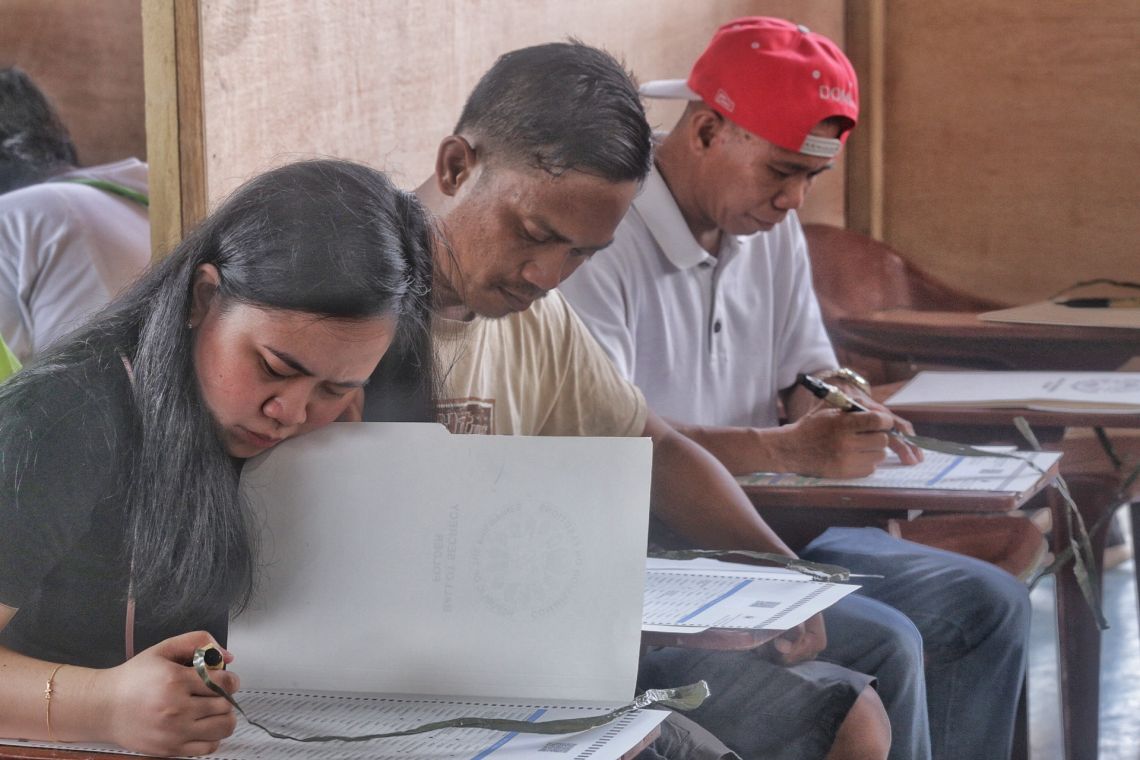
Three voters fill out their ballots. Photo by Luis Liwanag.
Polls still credible
Abas said out of the 85,769 vote-counting machines and SD cards used on Election Day, 961 VCMs and 1,665 SD cards were defective. He said this was higher than the 801 defective VCMs and 120 SD cards in the 2016 polls.
He apologized to the public for the inconvenience that these glitches caused. “We are asking for your understanding and patience.”
Casquejo assured the public that the 2019 midterm elections are “successful and credible,” even with all these issues.
“Lahat ng precincts nakapag-conduct ng botohan,” Abas said. “Wala po kaming failure of election ngayong 2019. And for us, isang magandang milestone iyon.”
While some cities, districts and provinces announced winners in local polls, the Comelec started its vote canvass for senators and party-lists.
During the canvassing, representatives and lawyers of partylists were able to obtain copies of the canvass results in the senatorial and party-list races from Mandaluyong, Las Piñas, Lapu-lapu, Makati, and overseas voting from Singapore and Athens in Greece.
They were also provided audit logs, which indicate the date and time stamp of the aforementioned cities when they are received by the Consolidated Canvassing System.
As of press time, 11 regions have partially transmitted their results to the canvassing board.
They are the Cordillera Administrative Region, National Capital Region, Regions 1, 3, 4, 5, 6, 7, 8, 9, 10, and 14.
— with Meeko Camba
